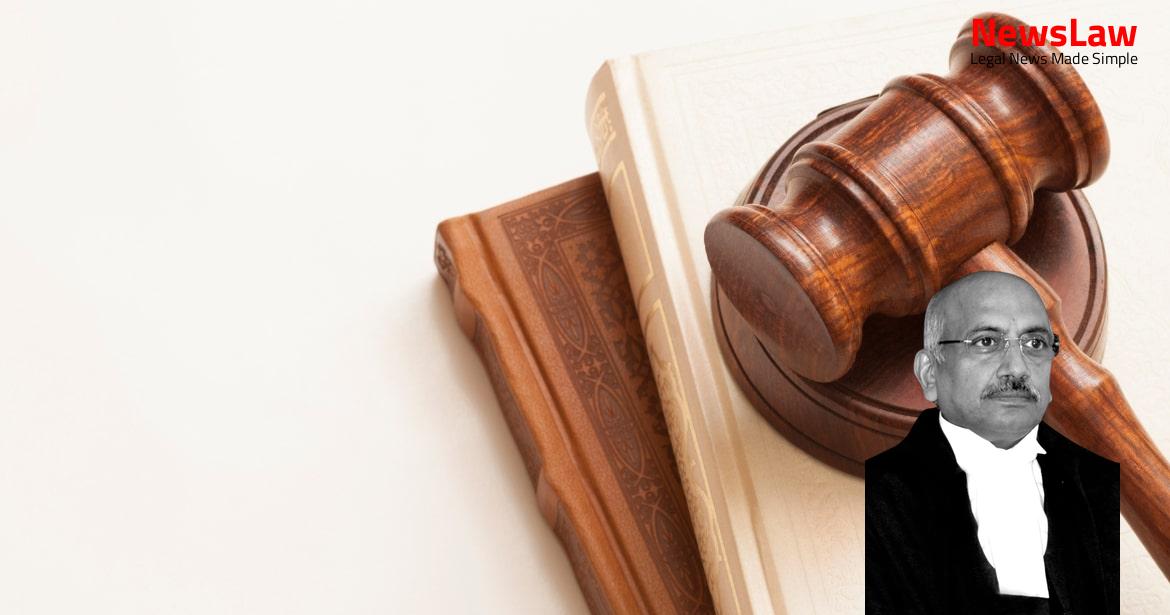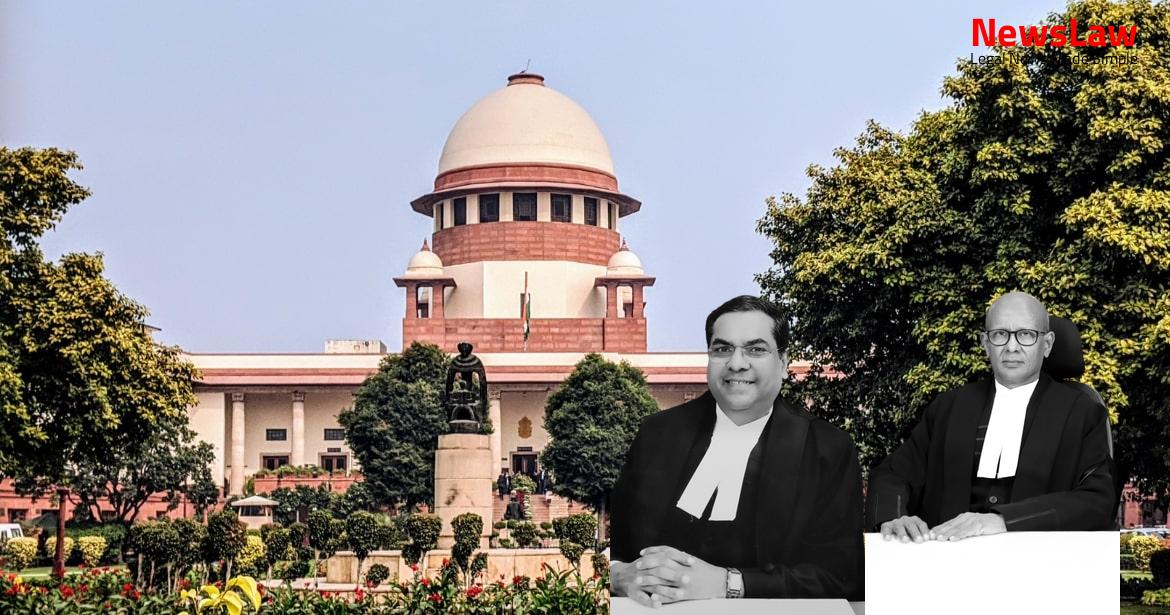In a significant legal development, the Supreme Court of India has issued a groundbreaking decision in the Land Allotment Dispute case. The case involved a dispute over land allotment between parties. The judgment provides crucial insights into registration and allotment rules, setting a precedent in the legal landscape. Stay informed with the latest updates on this pivotal ruling.
Facts
- The respondent failed to appear in multiple hearings before the consumer disputes redressal commissions.
- An order was issued by the forum directing the respondent to pay the current value for an allotment.
- The appellant published multiple advertisements for schemes from 1982 to 1995, with registration fee increments in between.
- Specific rules from the UP Awas Evam Vikas Parishad were followed regarding registration and allotment.
- The appellant filed an affidavit and provided relevant documents during the hearing.
- The case was eventually dismissed by the SCDRC due to the absence of representation by the respondent.
- A consumer complaint was filed by the respondent in 1993, eleven years after the initial registration.
- The revision filed by the respondent before the NCDRC in 2016 was decided in December 2018, leading to the current appeal.
Also Read: Anticipatory Bail Application in Different Cases: Landmark Judgment by the Supreme Court of India
Arguments
- The appellant submitted that the respondent had only registered for allotment and did not have a contract with the appellant.
- The appellant argued that Rules 15 & 30 state that mere registration does not guarantee an allotment, and written consent for participating in draws is required.
- The appellant highlighted that the respondent did not participate in draws and filed a complaint 11 years after registration.
- The appellant mentioned that the registration does not entitle automatic allotment at current market value as per the Rules.
- The appellant stated that the NCDRC’s order to allot a flat for Rs 2,50,000 was contrary to law as there was no contract between the parties.
- The appellant’s counsel argued that the NCDRC’s judgment was not justified as it compelled the appellant to allot a flat without proper legal grounds.
Also Read: Supreme Court of India Dismisses Writ Petition on Arms Export to Israel
Analysis
- Rule 30 allows registered applicants to submit a consent letter for participation in the draw of lots after advertisement in the newspaper.
- Rule 15 states that the Board is not obligated to allot a house or plot to every registered holder.
- Clause 5 of the Registration Booklet specifies that mere registration does not guarantee allotment.
- The District Forum granted the appellant the freedom to seek allotment at the current market value under any scheme of the Board.
- As a public authority, the appellant cannot be forced to enter into a contract with the appellant.
- The respondent had no contractual entitlement or vested right to seek allotment of a flat.
- The respondent, after initial payments in 1982 and 1985, did not pursue remedies until 1993.
- Applicants must demonstrate readiness and willingness to participate in a specified scheme’s draw of lots.
- The appellant is bound by the terms and conditions outlined in their Registration Booklet and the Rules of 1979.
- The NCDRC’s direction for a fixed allotment sum of Rs 2,50,000 lacks justification or rationale.
- Rule 30(5) provides a set of priorities for allotment.
- The direction from the NCDRC for the allotment was based solely on the forum’s opinion and not on contractual entitlement.
- Mere registration does not compel the authority to include every registered applicant in the draw of lots.
- The NCDRC has adopted a view contrary to basic principles of contract law.
- This view affects the rendering of justice in the case.
- The NCDRC’s approach deviates from established legal norms.
Also Read: National Task Force for Healthcare Safety: Ensuring Dignity and Protection for Medical Professionals
Decision
- The impugned order of the NCDRC has been set aside.
- The appeal has been allowed.
- No costs have been ordered.
Case Title: U.P. HOUSING AND DEVELOPMENT BOARD Vs. RAMESH CHANDRA AGARWAL
Case Number: C.A. No.-004529-004529 / 2019



